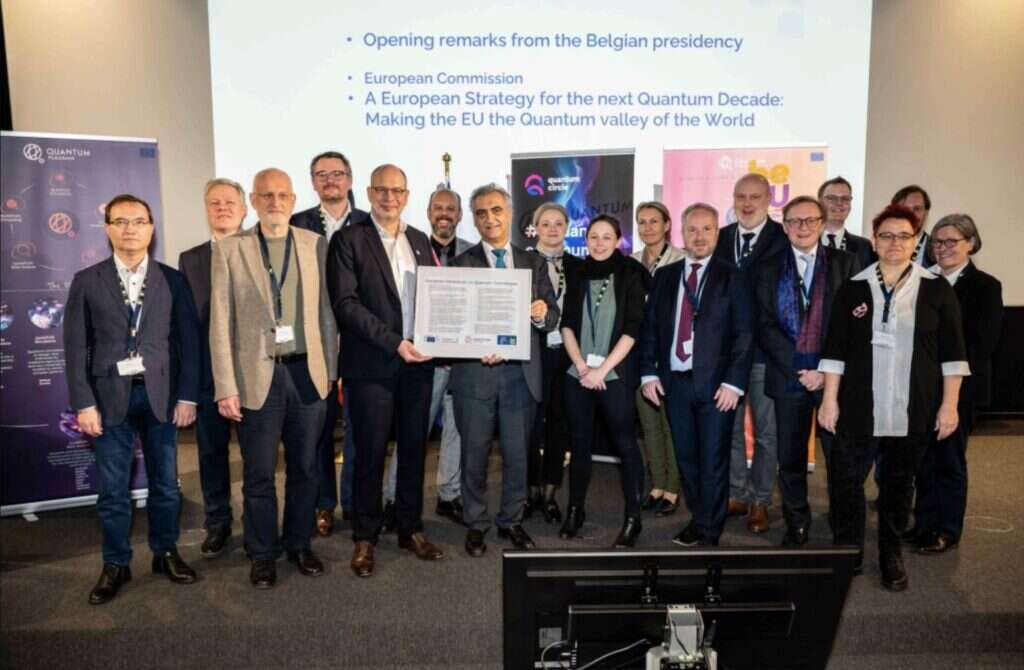
Twenty-one EU Member States representatives gathered on Friday to formally celebrate the signature of a landmark declaration that will see them collaborate to develop “a world-class” quantum technology ecosystem across Europe.

The signatory Member States met at the “Shaping Europe’s Quantum Future” conference held in Brussels on Friday 22 March, organised by the Belgian Presidency of the Council of the EU. The event was held as a part of an EU research initiative, Quantum Flagship, which promotes innovation and collaboration across countries to “put Europe at the forefront of the second quantum revolution.”
During the conference, EU commissioner for internal market Thierry Breton saluted the EU quantum pact as a “historic step towards shaping Europe’s quantum future.”
What is the EU quantum pact?
The European Declaration on Quantum Technologies was launched in December 2023 with the aim “of making Europe the ‘quantum valley’ of the world, the leading region globally for quantum excellence and innovation.”
With research in quantum technologies around the world advancing rapidly and progressively transforming different sectors from medicine to cybersecurity and computing, the declaration also intends to “avoid a situation of strategic dependency on non-EU sources”.
The states who signed the declaration committed to collaborate with each other and the EU Commission to develop quantum technologies.
Deputy director general at the EU Commission Thomas Skordas said at Friday’s conference that “only by building on our strengths, by working together, by being ambitious, by targeting the whole spectrum of activities – research, industry, infrastructures, talent, external partnerships and more – can we transform Europe into the leading region globally for quantum excellence and innovation.” He added that “quantum will help us to challenge the boundaries of what is possible.”
The initiative proposes to invest in the whole quantum stack and the main applications of quantum technologies, including quantum communication, quantum sensing and metrology, and quantum computing and simulation.
The EU’s strategy for quantum advance was highlighted during last week’s conference, through speeches, panel discussions and workshops. Attendees included government representatives, academics and industry leaders such as speakers from Belgium’s Interuniversity Microelectronics Centre (IMEC), one of the world’s leading nanoelectronics R&D hubs.






